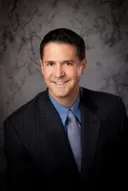How Can Physicians Ask For & Get a Raise?

arnoaltix/123RF.com
Physicians often find themselves earning a similar income year after year, or even a bit less. Many struggle through this, but years ago a mentor shared a few tactics to improve the playing field. Some of these options may be intuitive, but without directly asking for an increase in compensation, you will be in the same position twelve months from now.
Time Reward
In today’s medical climate, it’s not unusual for physicians to change jobs or move geographically. That is one of the perks of being a healthcare professional - jobs are easy to find.
Recruiting physicians and maintaining stability is a challenge for administrators. For those willing to put in the time and show loyalty and commitment, this can be a bargaining point for a salary bump. Another “ask” could be for an annual longevity bonus after a set number of years of employment. Many other industries incentivize seniority and experience - why not medicine?
Certifications and Merit Badges
Maintaining a license, board certification, and subspecialty credentials is expensive from both a time and monetary standpoint. For those that put in the extra effort to acquire new knowledge and advance their skills, the parent organization undoubtedly benefits.
I have noted colleagues who have completed fellowships, assumed new roles, and created new departments enjoy a nice bump in income and job-related perks. Seeing rewards for exceptional effort can encourage others to step forward and raise the bar.
Incentivized Participation
Any great team requires commitment and full participation of its members. The opportunities to serve on committees, lead new programs, get involved in hospital planning, and mentor younger professionals is endless. What is in short supply is time.
Physicians toil under mounting documentation requirements, new EHR systems to master, stricter prescribing mandates, and managing their reputations with the barrage of social media and online doctor rating sites.
Expecting volunteer participation on top of a crushing workload (and at the expense of the physician’s family and personal life) is a sad but common reality.
Early in my career, I was fortunate to work in a system that recognized sacrifices and provided a method of compensation. While specific meetings were mandatory, participation in optional conferences and strategy sessions were rewarded with actual dollar amounts. Our group felt this was a legitimate technique to help in deciding who would attend which meeting while still encouraging our department’s participation in the broader hospital administrative structure.
Generating Numbers
A balance is nice, but the work must be done. The US healthcare system is stretched to capacity. Efficient and productive providers deserve recognition and reward. I’m not suggesting that patients should be herded through their clinical experience, but providers who understand how to manage their workflow improve access to care.
The power of EHR systems lies in part with the tracking capability. It has never been easier to generate proof of work, patient and procedure volumes, and other parameters. Armed with this data, pleading your case for a salary increase just became easier.
Consider This
Innovation and change are potent tools reshaping the landscape of healthcare. Searching for improved techniques and creating new systems of care delivery are shaping an exciting future. For those willing to innovate, perhaps fail, yet try again - a reward seems just.
Why not pitch a project designed to demonstrate a tangible improvement in some aspect of patient care? The positive results can be used as fuel to further your quest for reward. Many a colleague has enjoyed a publication bonus, additional compensation for presenting at national meetings, or assignment of a new administrative role with increased compensation attached based on their creativity and innovation. How do you think the first Observation Units were created, and how were their developers compensated?
Ask

primagefactory/123RF.com
I have heard more than one administrator rest on the statement “We’ve always done it this way.” Don’t let fixed thinking deter change. Having worked in a variety of organizations, persuading consideration of your viewpoint is more than worth the effort. For example, a fixed hourly rate was changed to a differential system. The physician group was large, diverse in age and background, and yet cohesive. The administration agreed to a system that incentivized night shifts, weekends, holidays, and working extra shifts.
Resist the temptation to prejudge. In the example above, a few of the older physicians actually preferred night shifts, and some of the newly minted M.D.s took more of the day shifts so they could be home more often with their young families. This system is still in place today with a few additional layers of financial incentives.
Consider the above recommendations combined with your own strategies and tactics. Be bold and make “the ask.” What's the worst that can happen? You work exceptionally hard and deserve to be rewarded.
Related Posts
